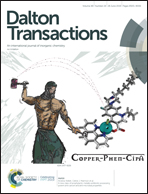Low-cost high-performance hydrogen evolution electrocatalysts based on Pt-CoP polyhedra with low Pt loading in both alkaline and neutral media†
Abstract
Platinum is the most active and commonly used electrocatalyst for hydrogen evolution reaction (HER). However, its expensive price and scarce supply limit its world-wide use for mass production of H2 by water electrolysis. Promising candidates for high-performance hydrogen evolution reaction with exceptionally low Pt loading are urgently required to obtain clean and sustainable chemical fuels. Herein, yolk–shell Pt-CoP polyhedra were prepared to realize low Pt loading on low-cost CoP polyhedral substrates via low-temperature calcination and phosphorization of ZIF-67 combined with a subsequent microwave-assisted platinum reduction process. Owing to the unique yolk–shell structure, large surface area, numerous active sites, trace Pt modification and improved conductivity, the resultant catalyst exhibits highly efficient electrocatalytic activities for the HER with the low overpotentials of only 48 mV and 88 mV at 10 mA cm−2 and excellent stability in the 1 M KOH and 1 M PBS solution, superior to most of the newly reported noble metal-based or transition metal-based catalysts, even the state-of-art Pt/C catalysts.



 Please wait while we load your content...
Please wait while we load your content...